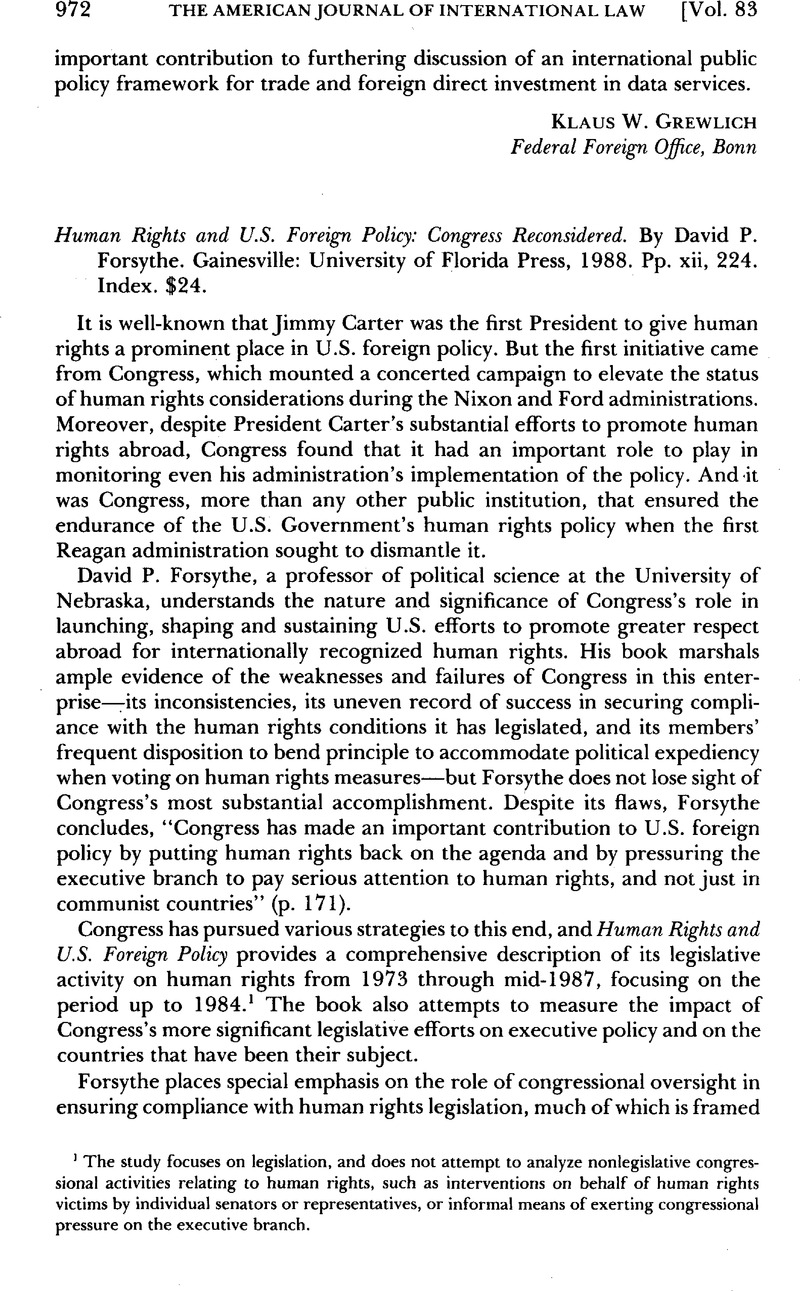No CrossRef data available.
Article contents
Human Rights and U.S. Foreign Policy: Congress Reconsidered. By David P. Forsythe. Gainesville: University of Florida Press, 1988. Pp. xii, 224. Index. $24.
Published online by Cambridge University Press: 27 February 2017
Abstract

- Type
- Book Reviews and Notes
- Information
- Copyright
- Copyright © American Society of International Law 1989
References
1 The study focuses on legislation, and does not attempt to analyze nonlegislative congressional activities relating to human rights, such as interventions on behalf of human rights victims by individual senators or representatives, or informal means of exerting congressional pressure on the executive branch.
2 This study updates and expands the scope of an earlier analysis of voting by senators on human rights bills. See Avery & Forsythe, Human Rights, National Security, and the U.S. Senate: Who Votes for What, and Why, 23 Int’l Stud. Q. 303 (1979).
3 This analysis, presented in chapter 2, assumes some familiarity with statistical methodology and terminology.
4 This index is prepared by the private American Security Council, and is based upon voting records of senators and representatives.
5 While Forsythe’s data illuminate congressional voting patterns on human rights bills, it is difficult to tell how far his findings go in predicting behavior. Forsythe applies his statistical analysis to 16 votes that he characterizes as “representative.” Although he explains the political significance of each of the votes included in his study, he does not identify general criteria used to select human rights votes for study other than their susceptibility to statistical analysis.
6 76 AJIL 246 (1982).




